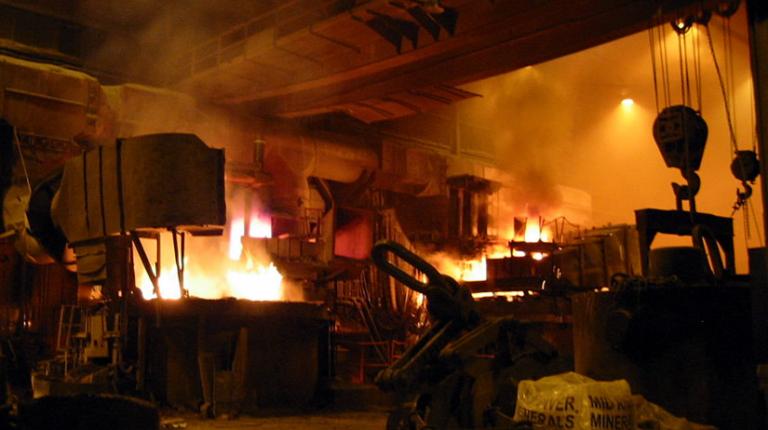
Readers will recall that I am the proud(ish) owner of a new minivan — and with that, the free trial subscription to sattilite radio, and the yes-I’m-a-Gen-Xer 80s on 8 channel, on which the Billy Joel song Allentown made an appearance earlier today while I was running errands.
Here it is, readers.
To be honest, I don’t remember this music video, just the song itself. I suspect that this predated the installation of cable TV in our home, when we were limited to the music videos that were aired on channel 62 for an hour in the afternoon.
But the song still makes me a bit weepy, at least when I’m in that sort of mood. It was released in 1982, when the newspapers were full of reports of factories closing. That was the year that Vincent Chin was murdered by two men who thought he was Japanese. It was a time when, in my Dad’s telling, autoworkers would think twice before parking a Japanese car in the company parking lot — that is, if they didn’t want their taillights smashed in. And it was a time when, depending on the telling, the UAW protected its employees despite their indifference to quality on the assembly line (“don’t buy a car made on a Monday or a Friday”), and demanded such high pay increases that the company couldn’t invest in improvements, or in which management was indifferent to any such improvements.
Remember when Obama mocked Romney: “the 80s called”?
Trump’s steel and aluminum tariffs have a bit of a time warp feel, as if he’s been transported to the 80s — or perhaps, as if, in the 80s, he had pledged that someday he would do something about these dastardly foreigners undercutting American steel.
Everyone’s throwing out all kinds of logical arguments about how much of a mistake a trade war would be, and that’s great, but Trump’s decision is coming from an emotional reaction, something straight out of the 1980s, not out of a considered logical analysis of the 2018 economy.
It reminds me a bit of Obama’s statement on capital gains: when told that increasing capital gains taxes would ironically reduce revenues and would increase taxes, not just on the wealthy, but on middle-class savers, he conceded the point but nonetheless said, “I would look at raising the capital gains tax for purposes of fairness.” It was a statement that was coming out of an emotion, the desire for fairness, not from any serious study of economics.
And that same “it’s unfair” appears when we think of trade — we Americans lower our trade barriers, but China doesn’t play fair in protection of intellectual property, allowing American firms into Chinese markets, and the like. We believe that the market should determine winners and losers; Korea’s government made the decision to build K-pop into an “export” and succeeded spectacularly, for example, and in China the government has been heavily involved in building up their export industries.
After I started drafting this post, Megan McArdle provided her own reflection on the prospective trade war:
Free-traders have a tendency to get too fixated on the consumer benefits of trade. When restrictionists accuse foreign companies of selling us artificially cheap goods, free-traders retort that you don’t complain when a manufacturer wants to sell you goods below cost; you snap up those bargains. But politically, this argument has its limits. For free-traders have missed something important: People care much more about their roles as producers than consumers.
The United States has long been seen as a nation of empty consumerism, with Americans deriving status from how much they can stuff into their oversize homes. But that’s wrong; in fact, Americans are a nation of workers. Foreigners often remark that the first question any American asks you upon meeting is “What do you do?” Our jobs are our identities. And people will do a lot more to protect their identity than they will to get 20 percent off a new washing machine.
The correct message, then, is not lyrical rhapsodies about how marvelous it is that we’re pulling so many Chinese peasants out of poverty. It’s that trade wars cost jobs, good American jobs.
Trump’s Trade War is intended to protect jobs; his opponents say this’ll backfire. But there is a growing acknowledgement that free trade has cost Americans jobs (e.g., this report from last week), and I’m not seeing any good answer to this problem.
Image: https://commons.wikimedia.org/wiki/File%3ASteelMill_interior.jpg; By Payton Chung from DC, USA (Fiery Finkl Forging) [CC BY 2.0 (http://creativecommons.org/licenses/by/2.0)], via Wikimedia Commons












